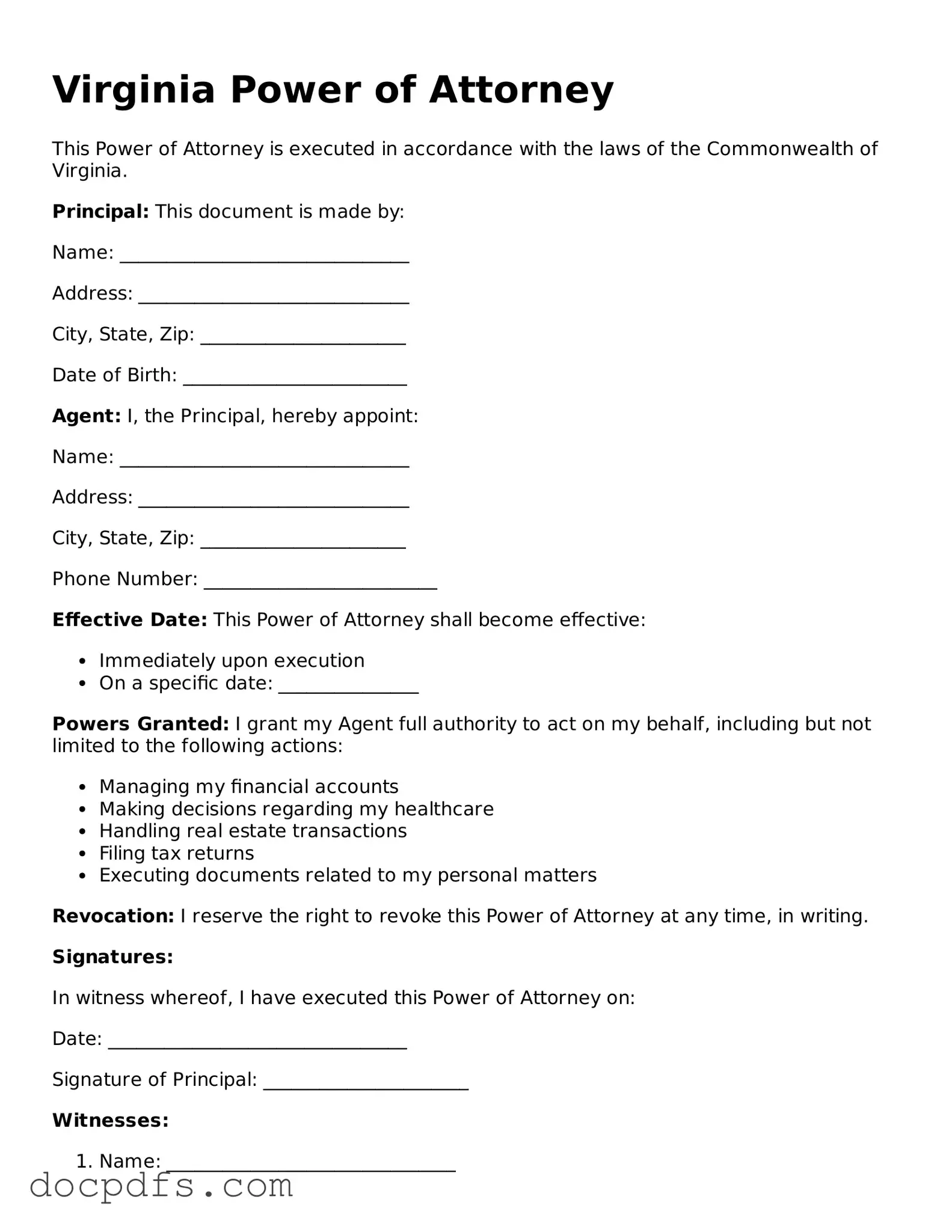Free Virginia Power of Attorney Form
The Virginia Power of Attorney form is a legal document that allows one person to grant another the authority to act on their behalf in financial or legal matters. This form is essential for ensuring that your wishes are honored, especially if you become unable to make decisions due to illness or incapacity. By designating a trusted individual, you can maintain control over your affairs even when you cannot manage them yourself.
Open Power of Attorney Editor Now

Free Virginia Power of Attorney Form
Open Power of Attorney Editor Now

Open Power of Attorney Editor Now
or
⇓ Power of Attorney
Finish this form the fast way
Complete Power of Attorney online with a smooth editing experience.